Keywords: Society Of Jesus
There are more than 200 results, only the first 200 are displayed here.
-
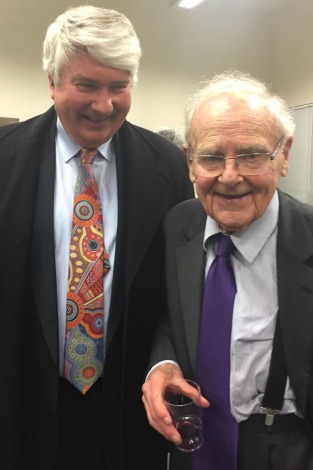
INTERNATIONAL
- Frank Brennan
- 26 July 2016
3 Comments
John traces the political ascent and descent of Sturzo whose first public office was as mayor of his own town. The chapter headings mark each step up and down the Everest of Italy's experiment with democracy and fascism: the emergence of political Catholicism in Italy; the dream takes shape; democracy without direction; democracy in decline; the search for a leader; the stick and the carrot; the voice of the watchman; and enter the night. Sturzo goes into exile; Mussolini takes over; and the Vatican is well pleased because the Roman Question is finally resolved in 1929 with the Lateran Treaties negotiated by Mussolini and Pope Pius XI, each of whom got what they were looking for.
READ MORE
-
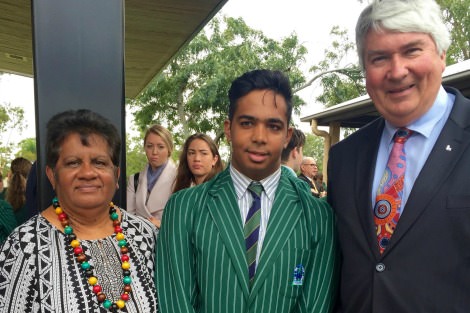
AUSTRALIA
- Frank Brennan
- 25 July 2016
7 Comments
Next year marks the 50th anniversary of the amendment to the Constitution which took out the adverse references to Aborigines. Following our recent election, we are assured at least six, and possibly seven, members of our national parliament who proudly claim an Aboriginal or Torres Strait Islander heritage. They are represented in all parties and none. How good it would be if our elected Aboriginal politicians could come together across party lines and propose an amendment to the Constitution which recognises them.
READ MORE 
-
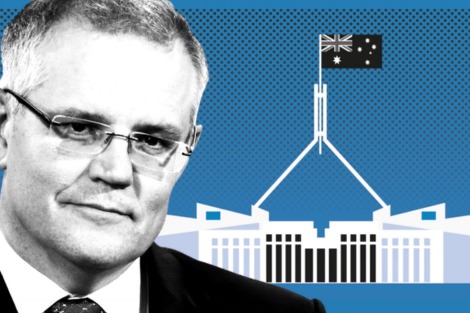
AUSTRALIA
- Andrew Hamilton
- 12 May 2016
5 Comments
It is important constantly to move from the budget to consider the plan it enables. If the budget is for the whole nation, it should look to the good of all, with each person and business having a responsibility for the good of others, particularly the most vulnerable. When budgets are constructed in such a way that the cost of their balancing is gross inequality and the exclusion of vulnerable people from participation in society, they should be rejected. They do not serve but betray the economy.
READ MORE 
-
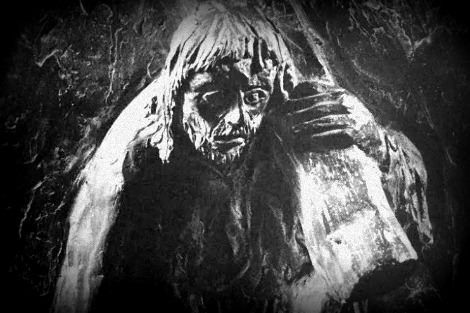
RELIGION
- Andrew Hamilton
- 24 March 2016
24 Comments
To many the challenge to endurance comes from a public world in which small gains are overtaken by huge losses. Why bother about people who seek protection from persecution or about our natural environment when the small initiatives we take are overrun by a flood tide of brutality and cynicism? What hope of building harmony in society when the Paris bombings are followed by those of Brussels? This challenge is universal, so the Christian celebration of Easter is of wider interest.
READ MORE 
-
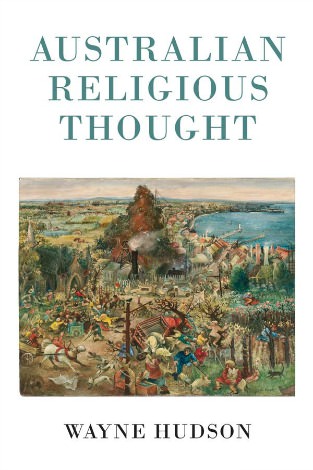
RELIGION
- Frank Brennan
- 22 March 2016
6 Comments
I offer no public judgment of Pell, and unlike many other commentators I'll await the findings of the royal commission. I have however been outspoken about his right to a fair hearing and natural justice, not because I am a priest but because I am a human rights lawyer who cares about the universal application of the rule of law. It is when a representative of institutional religion like Pell taps into the generic religious sensibility or moral consciousness that the real work of Australian religious thought is done.
READ MORE
-

RELIGION
- Frank Brennan
- 07 March 2016
'On his last two visits to Latin America, Pope Francis has focused on past and present relationships between indigenous peoples and their colonisers. This Jubilee Year of Mercy perhaps it could be a blessed moment for Aboriginal Australians and descendants of their colonisers to walk together through the Door of Mercy at the St Francis Xavier Cathedral, calling to mind the sins and endeavours of the past, the achievements and commitments of the present, and the hopes and aspirations of the future.' Fr Frank Brennan SJ, Lenten Talk, Norwood Parish, 3 March 2016
READ MORE
-
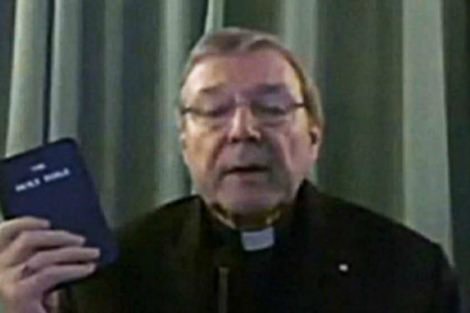
AUSTRALIA
- Moira Rayner
- 04 March 2016
40 Comments
A feeding frenzy is afoot over the review of Safe Schools program. At the same time poor old George Pell is under attack for failing to observe that his Ballarat colleagues were prolifically enabling Ridsdale and other pedophiles to sexually abuse little boys. The prurient desire to control the sexual interests of others on the one hand, and on the other the gross failures by institutions to protect vulnerable children in their care, are sadly linked to an unwillingness to face the truth about human sexuality.
READ MORE 
-
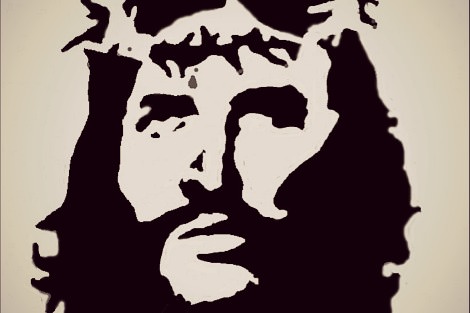
RELIGION
- Andrew Hamilton
- 25 February 2016
23 Comments
Liberation theology was once caricatured as Marxism with a Christian tinge, or the Bible plus Kalashnikov. In fact, thinkers identified with the movement were involved in a serious theological exploration. In public conversation in Australia the theological questions ut it raised are of marginal significance. But secular variants abound in which society is analysed in terms of the discrimination suffered by various minority groups at the hands of the majority or of those with power.
READ MORE 
-
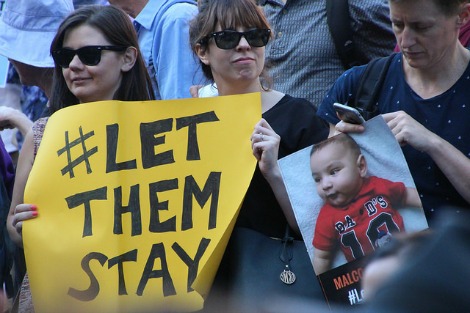
AUSTRALIA
- Andrew Hamilton
- 11 February 2016
15 Comments
The High Court decision on detention in Nauru came down just before the Christian season of Lent. It left the government free and determined to deport many young mothers and children to Nauru. For the mothers and children deportation will bring new trauma with renewed threat to their already precarious mental health. For the Australian public it again makes us ask what brutality, even to children, we are ready to tolerate. The savagery of this treatment is a suitable subject for Lenten reflection.
READ MORE 
-

RELIGION
- Frank Brennan
- 09 December 2015
2 Comments
'I joined the Jesuits in 1975 just as the previous 32nd General Congregation (GC32) was concluding. Pedro Arrupe was at the height of his powers. That Congregation asked the question: 'What is it to be a companion of Jesus today?' and answered unequivocally, 'It is to engage, under the standard of the Cross, in the crucial struggle of our time: the struggle for faith and that struggle for justice which it includes.' I have always regarded myself as a GC32 Jesuit. Many of those who gathered for GC33 thought that the GC32 mission was a little too one-dimensional. I suspect Bergoglio was one of those.' Frank Brennan on the eve of the Catholic Church's Jubilee Year of Mercy.
READ MORE
-

The Society of Jesus in Victoria, Jesuit Communications Christmas Raffle 2015 was drawn on Tuesday 8 December 2015 (Permit No 10861/15 issued 18 August 2015).
Congratulations to the winners: 1st prize: T. Fogarty, VIC; 2nd prize: C. McHardy, NSW; 3rd prize: C. Walsh, NSW; 4th prize: G. Day, NSW
Thank you to everyone who supported our Christmas raffle.
If you missed the opportunity to purchase raffle tickets but would like to support us financially, please consider making a donation.
READ MORE
-

RELIGION
- Frank Brennan
- 27 November 2015
2 Comments
'The crisis of child sexual abuse in our societies has required that our institutional procedures be more transparent and that we learn from the ways of the world in exercising power openly and justly. This means we have to restructure some of our church arrangements so that power is exercised accountably and transparently. All of us who have positions of influence and power in institutional churches need to be attentive to the voices of those who have suffered within our institutions.' 'Discerning the place for the prophetic voice and pragmatic cooperation of the churches in the great moral questions of the age', address to the Association of Practical Theology in Oceania conference, 26 November 2015.
READ MORE